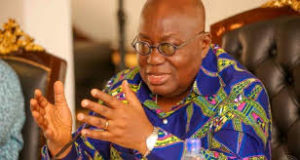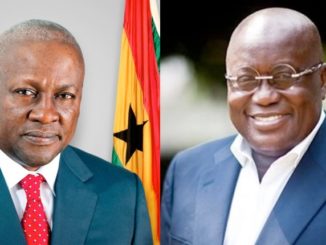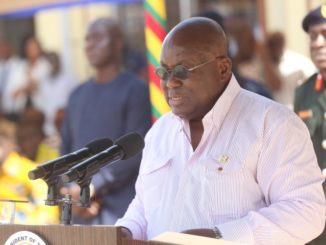 Newly discovered oil has contributed to Ghana being heralded as one of the fastest-growing economies in the world. However, as Timothy Conley reports, the country has reacted cautiously by implementing measures to protect itself against the consequences of too reliant on commodities.
Newly discovered oil has contributed to Ghana being heralded as one of the fastest-growing economies in the world. However, as Timothy Conley reports, the country has reacted cautiously by implementing measures to protect itself against the consequences of too reliant on commodities.
Plagued by poverty not long ago, Ghana is now considered by the International Monetary Fund to be among the world’s fastest growing economies, with a projected GDP growth rate of 8.3%. The country’s economic surge has been driven mainly by rising oil prices, as well as a growing number of oil production sites, such as the Offshore Cape Three Points.
The site, which opened for oil production in May 2017, includes an estimated equivalent of 770 million barrels of oil, according to investment monitor fDi Markets. Italy-based EniSpa invested $7.9bn in the newly developed block in May 2017 to open a new extraction facility. Netherlands-based Vitol Group owns a 37.78% share in the project, which is expected to begin gas production in mid-2018 and eventually produce 80,000 barrels of oil a day by 2019, according to the project’s official website.
‘One district, one factory’
While the commodities market has boosted Ghana’s economic outlook, it has also led to concern among political leaders – among them president Nana Akufo-Addo – who fear that over-reliance on oil and other resources is unsustainable.
Launched by Mr Akufo-Addo in August 2017, the ‘one district, one factory’ initiative offers investment matching and financial credit to projects worth more than $5m, according to its website. The initiative represents a wider effort by the Ghanaian government to diversify the country’s economy – which historically has been heavily reliant on commodities – and to create more jobs.
“Trade [should] not only [be] on the basis of [our] raw material exports, but on the basis of things we make. That is the surest route to prosperity, widespread employment and enhanced income,” said Mr Akufo-Addo, addressing the London School of Economics Africa Summit in April 2018.
As with China’s Belt and Road initiative, the ‘one district, one factory’ vision seeks to promote economic growth through infrastructure development, regional integration and educational reform.
Free secondary education
At the LSE summit, Mr Akufo-Addo elaborated on his government’s decision to provide free universal high school education to all citizens. “We decided to immediately [implement] the pledge we have made about providing free senior high school education,” he said. “The most dramatic aspect of its implementation has been [that] 90,000 more students entered senior high school last year.”
Ghana’s educational improvement has been coupled with calls for further economic cooperation between member states of the African Union. In March 2018, Ghana joined the African Continental Free Trade Agreement, which establishes a single market for goods and services.
“The free trade area will succeed as [Africa] transforms the structure of our economies from economies that are dependent upon the export of raw materials to value added economies,” said Mr Akufo-Addo. “A modernising agriculture, which enables us not only to feed ourselves, but also to generate thousands and thousands of jobs, that [is what] our young people need.”
Receptive investors
Ghana’s calls for diversification have already made an impact on foreign investors. According to fDi Markets, Ghana recorded a total of 29 greenfield projects in 2017 with a capital expenditure of $9.13bn. Despite the oil market’s importance, food and tobacco was the leading FDI sector with five projects in 2017.
Overall, investors are highly optimistic about the country’s economic future. According to market researcher Oxford Business Group’s (OBG) ‘Business Barometer: Ghana CEO survey’, which interviewed 100 C-suite level executives globally, “91% of respondents had very positive expectations of business conditions in [Ghana within] the next 12 months”.
Souhir Mzali, OBG regional editor for Africa, says: “Short-term expansion is set to be driven not only by heightened activity in the hydrocarbons sector, but also by growth in non-hydrocarbons activities such as agriculture and information and communications technology, in line with the government’s economic diversification objectives.”
Although these growth statistics suggest a bright future, investors remain concerned about rising oil prices. Most notably, the OBG survey reports that 37% of CEOs view rising oil prices as a threat to future economic growth.
China factor
China is Ghana’s largest trading partner and will likely be a key part of Mr Akufo-Addo’s industrialisation strategy. Currently, Chinese companies account for 13 active greenfield FDI projects in Ghana, far less than its penetration in other African markets, such as South Africa, Egypt and Kenya, according to fDi Markets.
In May 2018, state-owned Chinese enterprise the China National Building Material Co-operation (CNBM), announced its intention to provide $400m in support of 22 factories, as part of the ‘one district, one factory’ initiative. The Ghanaian minister of trade signed a memorandum of understanding to provide CNBM with the building contracts of the 22 factories, according to the Ghanaian Broadcasting Company.
–
Source: fDi Magazine /www.fdiintelligence.com



